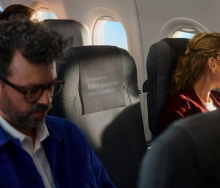In the past year, there has been a sharp uptick in tourist taxes for popular destinations, but why?
According to Tourism Taxes by Design, a white paper by Group NAO and the Global Destination Sustainability Movement, tourist taxes established in the past decade aim to regulate overtourism and regenerate popular tourist destinations.
The findings also reveal that the fees are used to fund the restoration of cultural heritage sites, development of tourism infrastructure, nature preservation and even compensation for residents for different forms of pollution.
Below are some examples of tourist taxes introduced in the last year, how they are structured, and what the funds will be used for.
Greece
The new climate tax will replace its old bed tax. Prime Minister Kyriakos Mitsotakis announced that the new tax would form a percentage of tourists’ accommodation expenses, in both hotels and short-term rentals, and that the amount would vary depending on the level and rating of the accommodation, as well as the popularity of the season during the visit.
The Greek government hopes to generate up to €300 million (R6,1 bn) in additional revenue to be channelled towards restoration following the forest fires and flooding in 2023.
Amsterdam, Netherlands
Last year, the Dutch capital’s officials announced that it would increase hotel room tax from 7% to 12,5%, and the cruise ship passenger tariff from €8 (R164) to €11 (R225) per person per day ashore.
According to Hester van Buren, Amsterdam’s Deputy Mayor for Finance, the funds raised will address the consequences of overtourism such as reducing water, land and noise pollution. Furthermore, the hiked taxes will finance additional tourism resources such as the media campaign discouraging inappropriate behaviour released in late 2023.
Bali, Indonesia
From February 14, international visitors to Bali will pay a standard fee of US$10 (R188) per person on arrival at the airport.
Following a series of incidents where international tourists’ bad behaviour resulted in the vandalism of cultural and environmental artefacts, officials announced that the fee would advance the protection and restoration of these monuments.
Barcelona, Spain
From April, international visitors to Barcelona will pay an increased municipal tourism tax, which was recently increased from €2,25 (R46) per night to €3,25 (R66), for the first seven days of their trips. This tax is an additional surcharge imposed on visitors on top of the regional tourist tax, which varies across short-term rentals and hotels, and hotel ratings.
Authorities designed the taxes to attract high-value tourism over mass tourism, favouring well-behaved tourists. The funds are intended to finance infrastructure improvements, environmental protection and the enforcement of local laws.
Seychelles
In August 2023, the Seychelles government introduced environmental sustainability levies paid per night according to tourists’ accommodation sizes and categories: SCR25 (R35) for small tourism accommodations, SCR75 (R105) for medium-sized accommodations, and SCR100 (R140) for large accommodations, yachts, and island resorts.
The Department of Tourism announced that the tax funds would be used to safeguard the islands’ unique wildlife and to promote responsible tourism.
According to the Seychelles Vice President Ahmed Afif, the nation is experiencing the effects of climate change first-hand, and the tax allows tourists to contribute to sustainability efforts that address conservation.














